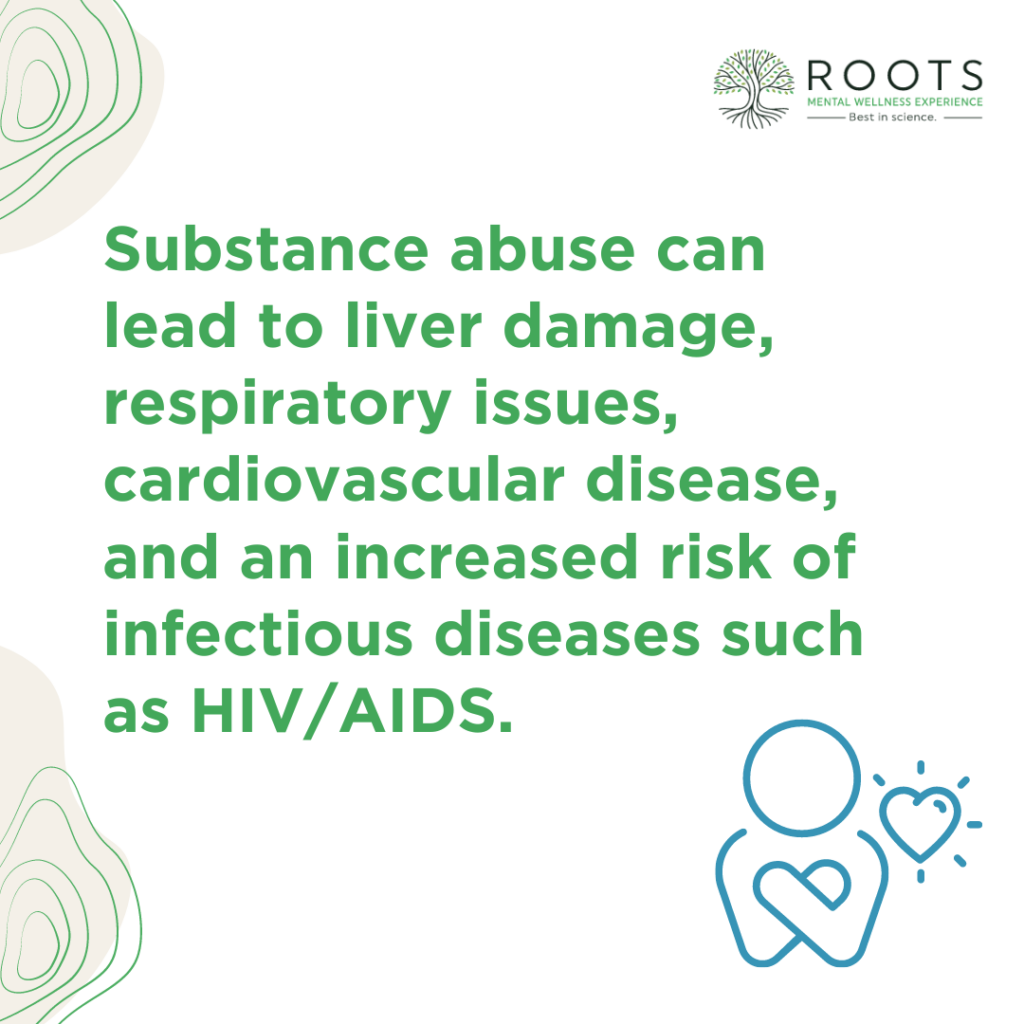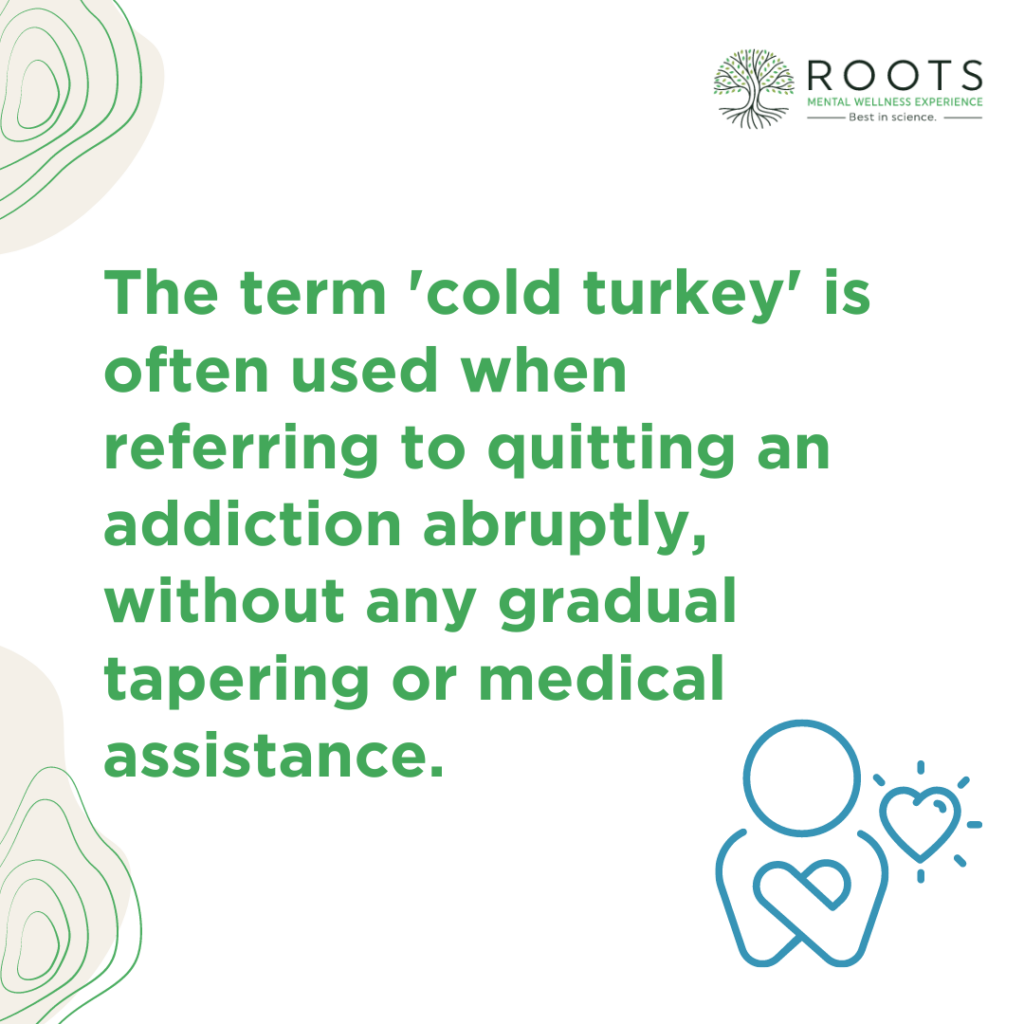How do you quit an addiction? That’s a tough question to answer. Bidding goodbye to it is like figuring out a way out of a difficult challenge. It takes strong determination to live a life free from substance abuse.
In this blog, we’ll discuss how to turn your back on substances, understand the challenges, risks, and rewards of doing it, and find ways to adopt a healthy lifestyle for a lasting recovery.

Understanding Substance Abuse
Substance abuse, often referred to as addiction, is a condition that affects millions of individuals. It involves the recurrent and harmful use of substances despite the negative consequences it causes. A plethora of factors, including genetics, trauma, and environmental factors, can cause it.
The Effects on Health and Well-being
Substance abuse takes a toll on the physical and mental health of those affected. The effects vary depending on the substance involved, but they may cover a range of issues, including:
Physical Wellness
Substance abuse can lead to liver damage, respiratory issues, cardiovascular disease, and an increased risk of infectious diseases such as HIV/AIDS.
Mental Health
Addiction often co-occurs with mental health disorders like depression, anxiety, and bipolar disorder, making it a dual diagnosis that requires specialized treatment.
Social and Relationship Impact
It can strain relationships with people close to you, leading to isolation, conflicts, and a breakdown of social support systems.
Legal and Financial Consequences
Individuals with addiction may face legal troubles related to drug possession or impaired driving. Additionally, the financial burden of supporting a substance abuse habit can be overwhelming.
Recognizing Addiction as a Medical Condition
The repeated use of addictive substances alters the brain’s structure and function, leading to intense cravings. This neurological change is why quitting an addiction can be exceptionally challenging.
Recognizing addiction as a medical condition helps reduce stigma and promotes a more empathetic and effective approach to treatment.
Challenges of Quitting Addiction
Individuals seeking to overcome addiction may encounter various obstacles along the way. Here are some of the most common hurdles faced when quitting addiction:
Withdrawal Symptoms
Depending on the substance and the level of dependence, withdrawal symptoms can be physically and mentally distressing. These symptoms can include nausea, tremors, anxiety, depression, and intense cravings. Managing withdrawal is often the first step in recovery.
Cravings and Triggers
Cravings for the addictive substance can persist long after the physical withdrawal symptoms have subsided. Studies emphasized how cravings can intensify over time, particularly after periods of abstinence. Environmental triggers, such as places, people, or situations associated with substance use, can intensify cravings and make relapse more likely.
Social Pressure
Social circles that revolve around substance use can exert significant pressure on individuals trying to quit. Peer influence and the fear of social isolation can make it challenging to maintain abstinence.
Dual Diagnosis
Many individuals with addiction also have co-occurring mental health disorders. Treating both conditions simultaneously, known as dual diagnosis treatment, is crucial for long-term recovery but can be complex.
Relapse
Relapse is a common part of the recovery process and should not be seen as a failure. However, it can be discouraging and require individuals to recommit to their recovery efforts.
Stigma and Shame
The stigma associated with addiction can prevent someone from seeking help. Shame and guilt can prevent individuals from reaching out to support networks or professionals.
Access to Treatment
Access to addiction treatment and support can be limited for various reasons, including financial constraints, lack of available services, or insufficient insurance coverage.
Lifestyle and Routine Changes
Recovery often necessitates significant lifestyle and routine adjustments. Breaking away from old habits and establishing healthier daily routines can be challenging.
Long-Term Commitment
Maintaining recovery is a lifelong commitment. It requires ongoing effort, vigilance, and a commitment to self-care.

Understanding ‘Cold Turkey’
The term ‘cold turkey’ is often used when referring to quitting an addiction abruptly, without any gradual tapering or medical assistance. While it may work for some individuals, the ‘cold turkey’ approach is a subject of debate within the field of addiction recovery.
Potential Risks
Severe Withdrawal Symptoms
Going ‘cold turkey’ can lead to intense withdrawal symptoms. These may cause symptoms like nausea, vomiting, anxiety, depression, insomnia, and in some cases, life-threatening seizures or delirium tremens (DTs).
High Risk of Relapse
The abrupt cessation of substance use can be psychologically challenging. Cravings can be overwhelming, and the risk of relapse is high, especially when individuals face intense withdrawal symptoms without medical supervision.
Physical Health Concerns
Some substances, such as alcohol and Adderall, can lead to life-threatening withdrawal symptoms, making ‘cold turkey’ extremely dangerous. Medical supervision is essential for safe detoxification from these substances.
Mental Health Impact
Quitting abruptly can take a toll on an individual’s mental health. Anxiety, depression, and feelings of hopelessness can intensify without proper support and management.
Managing Drug and Alcohol Cravings
Quitting addiction often involves dealing with intense cravings for the substance. To effectively manage and reduce these cravings, individuals can employ various strategies:
Identify Triggers
Understanding the situations, emotions, or people that trigger cravings is the first step. Once identified, one can work on avoiding or coping with these triggers.
Mindfulness and Meditation
Mindfulness and meditation techniques can help individuals stay present and manage cravings as they arise. These techniques promote self-awareness and emotional regulation.
Healthy Distractions
Engaging in activities that divert attention away from cravings can be helpful. This might include hobbies, exercise, or spending time with loved ones.
Delay and Distract
When a craving hits, individuals can employ the “delay and distract” technique. They delay their response to the craving by setting a timer for 20-30 minutes and engage in a different activity during that time.
Healthy Lifestyle Choices
Adopting a healthier lifestyle can reduce cravings. This includes regular exercise, a balanced diet, and adequate sleep, which can improve overall well-being.
Seeking Professional Help
While self-help strategies are valuable, professional assistance is often essential in addiction recovery. Knowing when and how to seek help is crucial:
It’s advisable to seek professional help as early as possible. Addiction tends to worsen over time, so addressing it promptly increases the chances of successful recovery.
Individual therapy can be highly effective in addressing the psychological aspects of addiction. It helps individuals identify and change harmful thought patterns and behaviors.
Joining support groups provides a sense of community and understanding. Telling your experiences with others who have faced similar challenges can be incredibly beneficial.
For individuals with severe addiction, residential or outpatient rehabilitation programs offer comprehensive treatment. These programs typically include therapy, counseling, medical support, and relapse prevention strategies.
Quitting addiction is undoubtedly challenging, but it is a journey worth embarking on. It requires determination, self-awareness, and a willingness to seek help when needed. Remember that you don’t have to face this battle alone. Roots Through Recovery is here to provide support, guidance, and resources you need. Contact our team for help.



